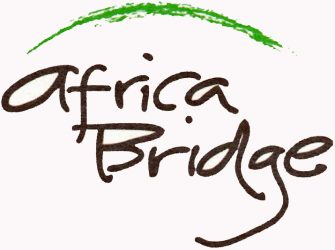BUILDING BRIDGES FOR CHILDREN (II)
Children who live in households experiencing extreme poverty survive on one meal a day, receive little education, and virtually no access to healthcare. It does not have to be this way.
Africa Bridge combines a volunteer psychosocial support initiative with a unique form of income generating co-operative that increases family incomes two to five-fold giving the heads of households the choices to transform the wellbeing of the children in their care.
What makes the Africa Bridge model sustainable and unique are the following critical elements:
I Creating and maintaining an unwavering focus on the most vulnerable children.
II A contractual transfer of activities to local leaders within 5 years.
III Building on the inherent strengths and characteristics of small rural communities.
IV The sustainable and generative nature of the co-ops.
II A contractual transfer of activities to local leaders within 5 years.
AB recognizes that for the program to succeed, the responsibility and ownership of the program must reside within the community. After the Future Search meetings are completed, a 5-year Collaboration Agreement is drawn up outlining the responsibilities of Africa Bridge and the community. An end date and quantifiable deliverables are set. All parties sign this 5-year Ward Collaboration agreement which forms the guidelines for the Ward Steering Committee.
Members of the Most Vulnerable Children’s Committee and Co-ops are given intensive training in real time for up to three years to ensure they have the capacity and confidence to take full responsibility for the 5-year program.
The newly formed co-ops learn about governance and elect co-op leaders, who over the next few years assume leadership of the co-ops. Every co-op member signs a contract making them responsible for the care of the agricultural assets they receive. Local government leaders cosign this contract and agree to ensure that they will steward the co-op members contractual obligations along with co-op leaders. Members of the Most Vulnerable Children Committees (MVCC) receive training to increase their knowledge on psychosocial interventions and providing paralegal support.
For example, members of the MVCC learn how to ensure each vulnerable child receives a birth certificate. We in the US would not think this is significant. We assume every child gets a birth certificate at birth. In Tanzanian villages most people do not have a birth certificate. A birth certificate is only required if you want to open a bank account, attend high school or receive medical help. These are both uncommon practices in a village. However, if there is a dispute about a child’s inheritance, a child without a birth certificate has no rights. Hence, the MVCC ensure they get birth certificates for every vulnerable child in the community. MVCC members learn about children’s and women’s rights and communicate this information on to the villagers. The services provided by these volunteers are extensive. I am always humbled when I listen to members of a village MVCC give a monthly report on their activities.

Tunsi Belaga, Corn Co-op, Lufunbi Village: “After our monthly co-op meetings the women would stay on and discuss how we could start our own businesses. After our first harvest we began to realize that we could grown better corn than the men. If we could grow better corn than men, then we could do anything better than men.”
The leadership of the project shifts from Africa Bridge to the Steering Committee, the MVC Committees and the Co-ops.
Women become more entrepreneurial and confident. They start new businesses and emerge as respected community leaders.

